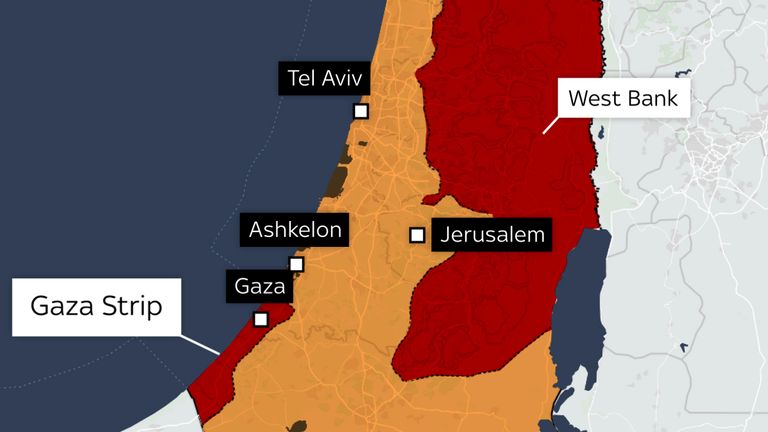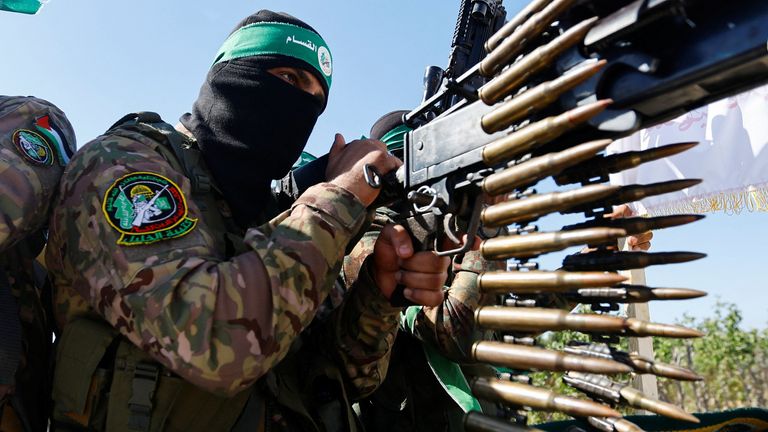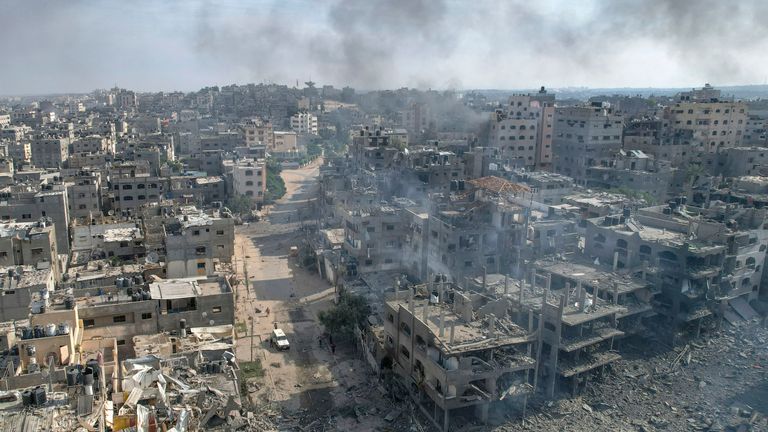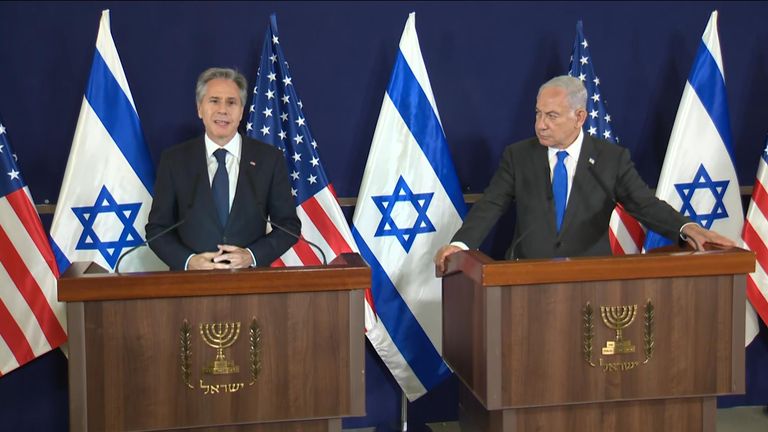A ground offensive on the built-up streets of Gaza will be “very high-risk” for Israel, with dangers around every coroner, according to Sky News’s military analyst Sean Bell.
While Israel’s leaders have not confirmed a ground offensive on the Gaza Strip, its military has amassed soldiers and tanks on the border and some analysts have suggested it could be launched “within hours or days”.
It will be the Israeli Defence Forces’s (IDF) fifth major military operation in Gaza in the last two decades, and could be the largest since the 2008 Gaza War.
Bell, who served in the RAF and left in 2012 as an Air Vice-Marshal, says sending troops into the urban districts of Gaza will be a high-risk strategy.
Israel-Gaza latest live: No electricity, water or fuel for Gaza until hostages freed
“Urban fighting is very, very dangerous – every corner, every doorway, every window might hide a potential threat, and the IDF will be very exposed,” he says.
“Any ground offensive into the urban districts of Gaza would be a very high-risk strategy for Israel.
“Hamas fighters will not be wearing uniform, so will blend in with the 2.3 million residents of Gaza, making it very difficult to identify and target them all.
“Hamas’s offensive was very well planned, they will also have been aware of what options would be available to the IDF by way of reprisal. So, Hamas will be ready.”
Bell says Russia’s recent and bloody battle for Bakhmut shows how costly urban warfare can be for offensive forces against a determined defender in a built-up area.
“Russian soldiers fought their way street to street, suffered over 30,000 casualties, and left a trail of destruction in their wake,” he says.
“Israel will be keen to avoid such a fate, and will be keen to avoid getting bogged down in Gaza.”
How will they attempt to rescue hostages held in Gaza?
One further complication is that Hamas fighters took hostages back into Gaza following their attack on Israel over the weekend.
Israeli Foreign Minister Eli Cohen said earlier this week that more than 100 people were taken captive by Hamas.
Read more:
What weapons do Israel and Hamas have?
What is Hamas and why is it in conflict with Israel?
Why Israel is braced for Hezbollah attack from Lebanon
“It will be extremely difficult to track down and liberate them all,” says Bell.
“The IDF will be exploiting all means at their disposal to gather intelligence – whether from on the ground, from intercepting communications, from satellite imagery or from allies – to enable special forces to locate and then liberate as many hostages as possible.
“However, it seems likely that the Israelis will focus on their primary objective of destroying Hamas.
“The seizure of hostages by Hamas was always designed to present the Israeli leadership with a conundrum.
“Resolving a hostage situation requires negotiations and compromise; it does not look likely that Israel has the appetite for anything other than military action.
“Although the primary value of hostages to Hamas requires them to be alive, given the brutality of the conflict to date, Hamas might use social media to amplify the predicament faced by the hostages, and indeed demonstrate what might happen if Hamas’ demands are not met.”
But does Israel not have a military advantage?
Israel has one of the most powerful militaries in the world, with up to 175,000 active military personnel and a further 465,000 reservists to call on.
Military service is compulsory for the majority of Israelis when they turn 18.
Israel also receives billions of pounds each year in terms of military aid from the US, as well as access to some of America’s most high-tech weapons and equipment, including F-35 jets.
But Bell says that the highly urban environment of Gaza, alongside Hamas’s own weapons and training, negates some of Israel’s technological advantages.
“Urban fighting is traditionally the domain of infantry rather than armour, as the latter is very constrained in the urban environment and thus vulnerable,” he says.
“Intelligence suggests that Hamas has anti-tank weapons, so the use of armour in the city would be problematic.
“The urban environment generally favours the defender, and negates the usual advantages of a conventional military capability, so the main weapons will be those carried by infantry, coupled with the use of drones to help provide real-time intelligence.
“The IDF would also expect to co-ordinate attacks against more substantial Hamas targets using air assets to provide precision strike.
“In contrast, the unguided rockets – widely used by Hamas – will be of limited use in the urban environment”





